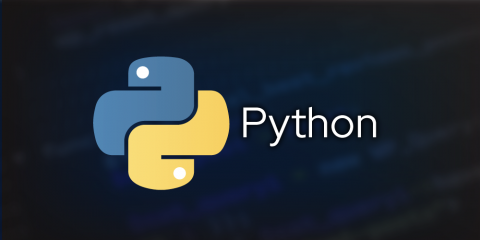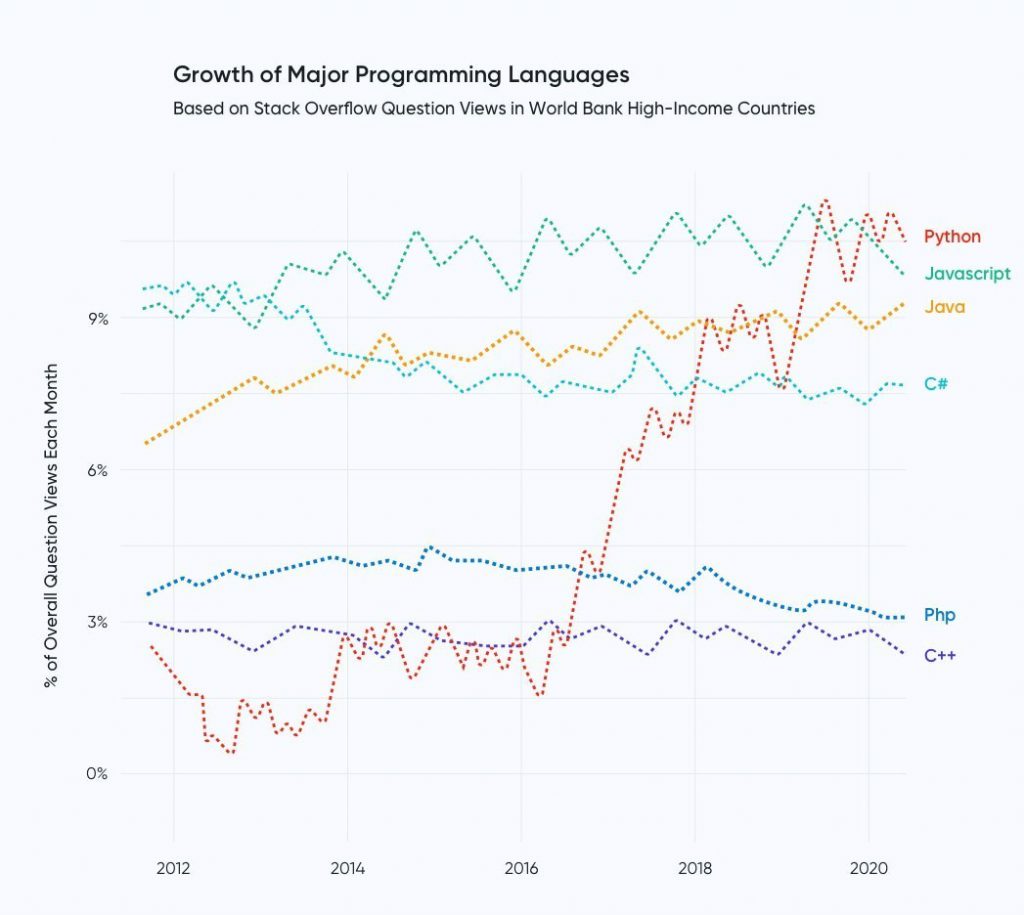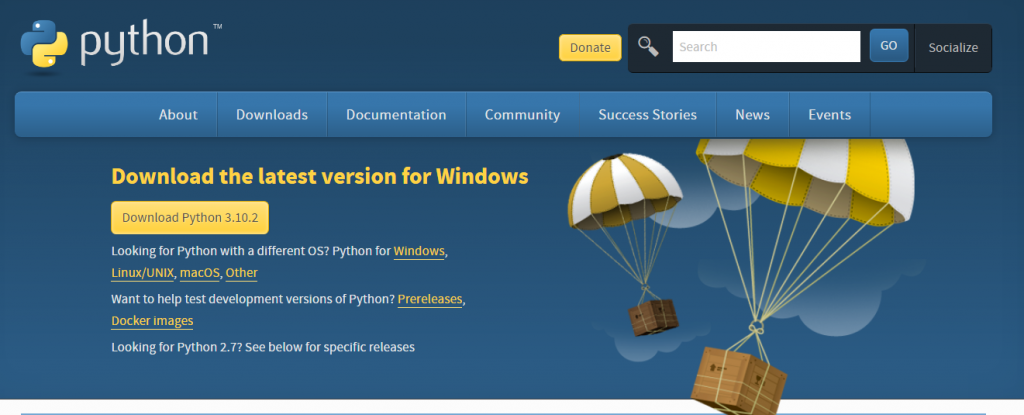
What is Python?
Python is an interpreted, general-purpose programming language, which is one of the most popular choices for modern software development.
Python is a very multi-purpose programming language, often earning the term of a “universal language.
Let’s break that down
Interpreted– Each time the program is run, the interpreter processes the source code on the spot, line by line, halting if there are errors. The contrast to an “interpreted” language is a “compiled” language such as C# which translates the whole code in one go and reports errors collectively.
Object-Oriented– An object oriented language (OOL) uses the concept of an “object” (data in the form of fields/attributes/properties and code in the form of procedures or methods) to make programming easier to develop, reuse and maintain.
High-Level-programming language uses strong abstraction from the computer instructions (e.g. natural language) to make it easier to use.

These Python tools can be convenient for many different purposes if you know how to use them right. So, without further delay, let’s look at the best Python tools out there!
Python tools
- Scikit-Learn
Scikit-Learn is an open-source tool designed for Data Science and Machine Learning. It is extensively used by Developers, ML Engineers, and Data Scientists for data mining and data analysis
- Keras
Keras is an open-source, high-level neural network library written in Python. It is highly suited for ML and Deep Learning.
- Robot Framework
It uses tabular test data syntax and is keyword-driven. Robot Framework integrates many frameworks for different test automation requirements.
- LXML
LXML is a Python-based tool designed for C libraries – libxml2 and libxslt. It is highly feature-rich and one of the most easy-to-use libraries for processing XML and HTML in Python
- Selenium
In Selenium, you can write test scripts in many other programming languages, including Java, C#, Python, PHP, Perl, Ruby, and .Net.
Python application
- Web and software development
Frameworks based on Python i.e. Django and Flask have become a popular choice for web development. it has a built-in framework for unit tests – this lets you deliver bug-free code. On top of it all, it nicely integrates with other languages like Java.
- Audio/video applications
Audio and video applications based on Python such as TimPlayer and Cplay provide better stability and performance when compared to apps built using other technologies. Librosa and pyAudioAnalysis, automatically analyze audio content.
- Game development
There are Python libraries suitable for game development which speed up the development process and enable fast prototyping. Writing 3D games in Python is possible thanks to its integration with the Panda3D engine.
some great games were built on it, including EVE online, Battlefield 2, and World of Tanks.
- Machine learning (ML) and AI
developers can write reliable code. Instead of dealing with technicalities, they can focus on solving a machine learning problem.
History of Python
The programming language Python was conceived in the late 1980s,and its implementation was started in December 1989[2] by Guido van Rossum . Python 2.0 was released on October 16, 2000, with many major new features. Python 3.0, a major, backwards-incompatible release, was released on December 3, 2008 after a long period of testing. Many of its major features have also been backported to the backwards-compatible, though now-unsupported, Python 2.6 and 2.7.
Python is used for:
- General Purpose Web Applications & Software Development
- Audio/Video Applications
- Game Development
- System Administration Applications
- AI and Machine Learning
- Scientific Computing
- Data Analysis and Visualization
- Web Scraping
Type of Release-community
Python is developed under an OSI-approved open source license, making it freely usable and distributable, even for commercial use. Python’s license is administered by the Python Software Foundation.
latest version of python

Latest version of python is “Python 3.10.2“
Founder of company
Guido van Rossum
Official website-
https://www.python.org/
Advantages of python
- Versatile, Easy and Fast to Develop
- Open Source with Wide Community Support
- Robust Frameworks and Libraries
- Rapid Prototypes
- Improved Productivity
- Portability
- Code Readability
- Automatic Memory Management
Best Alternative of Python programming
- Java
- NodeJS
- PHP
- Ruby
- Golang
- Scala
Components of python
There are many components of python that make it a high-level programming language. The most important components are as follows:
1) Expression: An Expression is a phrase of code that Python assesses to produce a value. The simplest expressions are literals and identifiers. You build different expressions by getting sub expressions together with the operators and delimiters.
For example:
1+1
2
In the case of strings implies that it includes quotation marks. But if you use a print statement, Python shows the contents of the string without the quotation marks.
2) Statements: It is a logical unit of code that can be executed by the Python interpreter. At the point when we type the statement at the command prompt, it will execute the code in the statement and give the result, as long as the code is error-free. In general, the programming code saved in the document contains scripts; these scripts are a combination of statements to perform units of work.
3) Comments: As programs get bigger and more complicated, they get harder to read. Formal languages are thick, and it is frequently hard to take a look at a piece of code and sort out what it is doing, or why.
For example:
Percentage = (minute * 100) / 60 #caution: integer division
“#caution: integer division” is the comment in the program. Everything from the # to the end of the line is ignored; it has no impact on the program. The comment is intended for the programmer or for future developers who may utilize this code. The above-quoted example reminds the reader about the ever-surprising behavior of number division.

Python Terminologies
- argument
- assignment
- break
- class
- class variable
- compiler
- conditional statement
- dictionary
Best Resources, Tutorials and Guide for Python programing
Free Video Tutorials of Python programing
Interview Questions & Answer
Best Courses and Insitute for learning for Python
If you want certification course for such top course. So please visit “Devopsschool.com”. You will find more certification courses here.

I’m a DevOps/SRE/DevSecOps/Cloud Expert passionate about sharing knowledge and experiences. I am working at Cotocus. I blog tech insights at DevOps School, travel stories at Holiday Landmark, stock market tips at Stocks Mantra, health and fitness guidance at My Medic Plus, product reviews at I reviewed , and SEO strategies at Wizbrand.
Do you want to learn Quantum Computing?
Please find my social handles as below;
Rajesh Kumar Personal Website
Rajesh Kumar at YOUTUBE
Rajesh Kumar at INSTAGRAM
Rajesh Kumar at X
Rajesh Kumar at FACEBOOK
Rajesh Kumar at LINKEDIN
Rajesh Kumar at PINTEREST
Rajesh Kumar at QUORA
Rajesh Kumar at WIZBRAND

